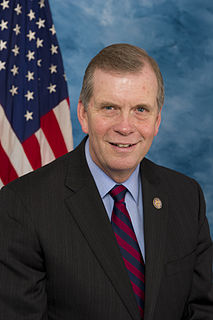A Quote by Amartya Sen
When I was giving a lecture in India, the capabilities that I have to be concerned with there, namely the ability of people to go to a school, to be literate, to be able to have a basic health care everywhere, to be able to seek some kind of medical response to one's ailment; these become central issues in the Indian context which they're not in the UK, because you're well beyond that.
Related Quotes
One of the things we need to do is address mental health care as an integral part of primary care. People often aren't able to navigate a separate system, so you see successful models where a primary care physician is able to identify, diagnose, and concurrently help people get mental health treatment who have mental health issues.
We are unique among advanced countries that we don't have universal health care. My hope was that I was able to get a hundred percent of people health care while I was president. We didn't quite achieve that, but we were able to get 20 million people health care who didn't have it before. And obviously some of the progress we made is now imperiled because there's still a significant debate taking place in the United States. For those 20 million people, their lives have been better.
The U.S. has a system that does have a poor cost-benefit ratio. I mean, 40 million people lack insurance; another 30 million or so are underinsured. The people who are insured do have to worry whether they are able to pay the bills. People become bankrupt because they cannot pay the medical bills, and there are vast differences in the quality of care depending on how much you are prepared and able to pay. I think the system is not working well.
The Affordable Care Act is a huge problem. [Repealing the ACA is] going to have huge implications. We have millennials that live in Boston that are on their parents' health insurance. The businesses have hired them and have been able to hire more people because they have been able to be on their own health insurance. We have seniors in our city who have preexisting conditions, or something called a "donut hole," which is a prescription drug [gap] in Medicare. Whatever changes they make could have detrimental effects on people's health care, but also on the economy.
One of the issues I think is very important, in many communities of color, there's a stigma about mental health. We find that the shaming that comes from acknowledging that one may have some issues that may relate to mental health, often people are not willing to go and seek additional help because of that shaming or that cultural stigma that's associated with it. And I think that we need to make this change in how people approach mental health.
We need to start training more primary health providers and fewer specialists. We will never be able to control health care costs unless we challenge the over-emphasis on medical research, specialists and technology and put more emphasis on delivering good, everyday basic medicine to those who now have none.
Medicare is a monopoly: a central-planning bureaucracy grafted onto American health care. It exercises a stranglehold on the health care of all Americans over 65, and on the medical practices of almost all physicians. Medicare decides what is legitimate and what is not: which prices may be charged and which services may be rendered.
I can say that China has been cooperating with India to search for solutions. On some issues, it's a question of principles for them. On some issues, it's a question of principles for us. On some issues they differ with us and there are issues on which we differ with them. There are some basic differences. But the most important thing is that we can speak to China eye-to-eye and put forth India's interests in the most unambiguous manner.
Most of the things I'm talking about are essential human rights. I don't think it should be political to say that children should be able to have lunch at school when their families can't afford to feed them properly, or to say women should have access to basic health care, or that Muslims deserve equal protection under the law, or police shouldn't be killing black people and getting away with it - it shouldn't be a political thing to say. A lot of people on the right standing behind Christian values should be standing with us, because equality is a basic tenet of Christianity.









































